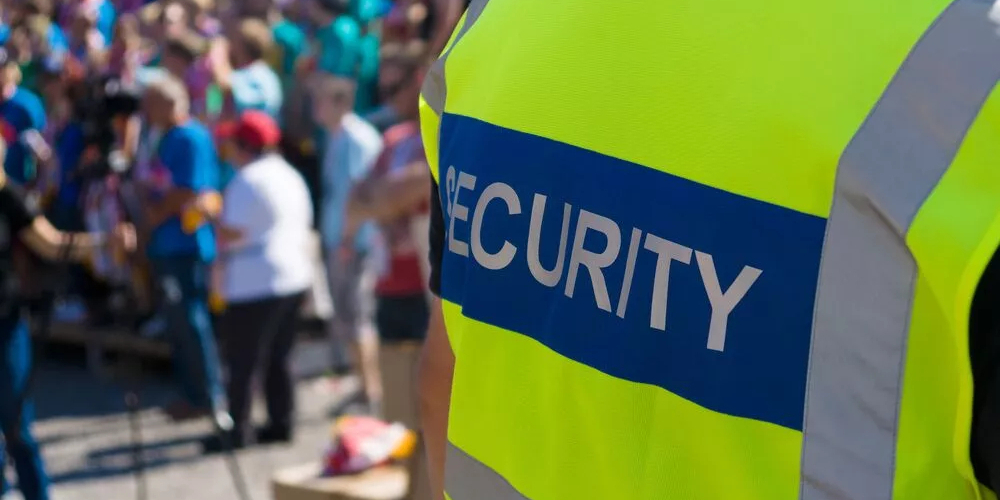Hosting a successful event requires meticulous planning, and one crucial aspect that should never be overlooked is security. Whether you’re organizing a corporate conference, a music festival, or a sporting event, ensuring the safety of attendees, performers, and staff is paramount. In this comprehensive guide, we will delve deep into the world of security for event, providing you with valuable insights and expert advice to help you host a secure and successful event.
Table of Contents
- Understanding Event Security
- Security For Event : A Top Priority
- FAQs
- How do I determine the level of security needed for my event?
- What should I include in my emergency response plan?
- How can I ensure responsible alcohol management at my event?
- What cybersecurity measures should I put in place for my event?
- How do I hire the right security personnel?
- What should I do in case of a medical emergency at my event?
- Conclusion
Understanding Event Security
What Is Event Security?
Event security encompasses a range of measures and protocols put in place to protect attendees, staff, and property during an event. It includes crowd control, emergency response planning, and the prevention of potential threats.
Why Is Event Security Important?
Event security is essential because it ensures the well-being of all attendees and staff, creates a positive and stress-free environment, and safeguards the reputation of the event organizer.

The Role of Security Personnel
Security personnel play a critical role in maintaining safety at events. They are responsible for monitoring crowds, checking credentials, and responding to incidents swiftly and efficiently.
Security For Event : A Top Priority
When it comes to event planning, security should always be at the forefront of your mind. Here, we’ll explore various aspects of event security that you need to consider.
Risk Assessment
In addition to identifying potential threats and vulnerabilities, a comprehensive risk assessment should also prioritize the evaluation of historical data and trends. This helps in understanding the evolving nature of risks and adapting the security plan accordingly. Furthermore, involve relevant stakeholders, such as local law enforcement and emergency services, to gain insights into local security concerns and coordinate responses effectively.
Access Control
Incorporate a tiered access control system to differentiate between different levels of access based on roles and responsibilities. This ensures that not only sensitive zones but also backstage and operational areas are secure. Utilize biometric authentication or RFID technology for more secure and efficient access control, and have contingency plans in place for situations like lost passes or unauthorized access attempts.
Crowd Management
To ensure effective crowd management, establish clear communication channels and emergency procedures for both attendees and security personnel. Consider using signage and announcements to guide attendees and provide information on exits and safety protocols. Additionally, conduct regular drills and simulations to prepare your security team for various crowd-related scenarios, emphasizing the importance of a calm and organized approach.
Surveillance Systems
Integrate advanced analytics into your surveillance systems to enable proactive threat detection. Additionally, establish a centralized monitoring station where trained personnel can continuously observe camera feeds and respond swiftly to potential security incidents. Consider using drones with cameras to provide real-time aerial surveillance, particularly for large outdoor events.
Cybersecurity
Regularly update and patch all event-related software and systems to safeguard against known vulnerabilities. Conduct cybersecurity training for event staff to educate them about common phishing and social engineering tactics. Implement strong encryption protocols for data transmission and storage and have a well-defined incident response plan to minimize the impact of any cyberattacks that may occur during the event.
FAQs
How do I determine the level of security needed for my event?
Conduct a thorough risk assessment to identify potential safety security threats and vulnerabilities. The level of security needed will depend on the nature of your event, its location, and the number of attendees.
What should I include in my emergency response plan?
Your emergency response plan should cover procedures for medical emergencies, fires, security breaches, and other potential incidents. It should detail evacuation routes, communication protocols, and roles and responsibilities.
How can I ensure responsible alcohol management at my event?
To ensure responsible alcohol management, limit alcohol sales, monitor consumption, and provide transportation alternatives for attendees who may be intoxicated. Train staff to recognize signs of overconsumption.
What cybersecurity measures should I put in place for my event?
Implement strong cybersecurity measures, including firewalls, encryption, and regular security audits. Protect attendee data and online ticketing systems from cyber threats.
How do I hire the right security personnel?
When hiring security personnel, look for individuals with proper training and credentials. Conduct background checks and ensure they have experience in event security.
What should I do in case of a medical emergency at my event?
In case of a medical emergency, call for medical assistance immediately. Have a designated medical area with trained personnel and necessary equipment to provide first aid.
Conclusion
Security for events is not something to be taken lightly. By following the guidelines and best practices outlined in this article, you can ensure the safety and well-being of everyone involved in your event. Remember, meticulous planning and a proactive approach to security will contribute to the overall success of your event.